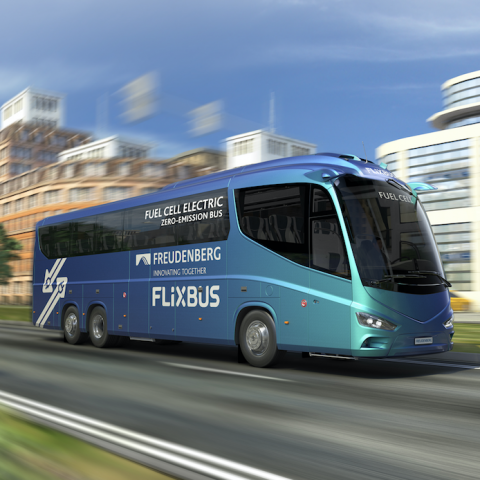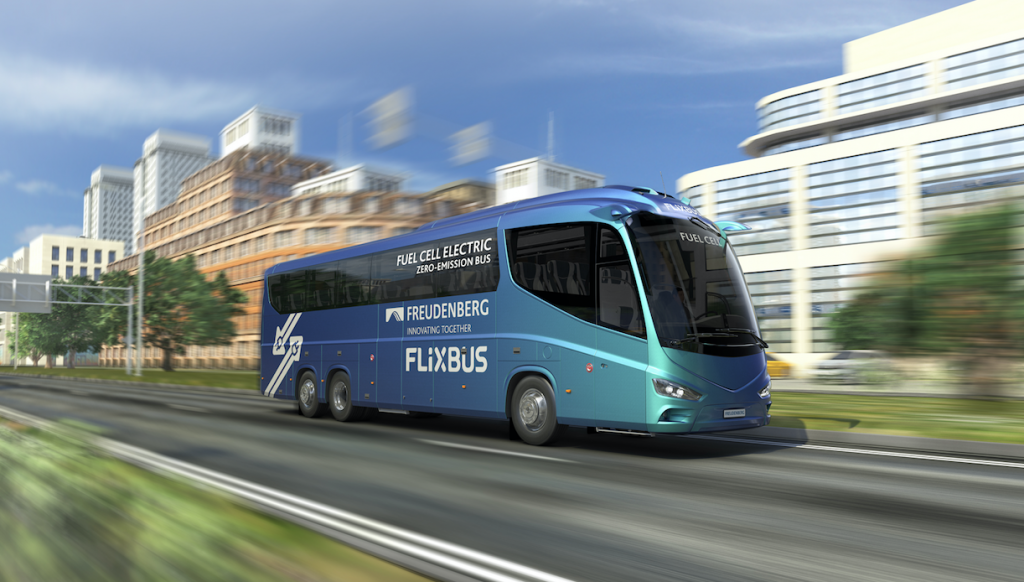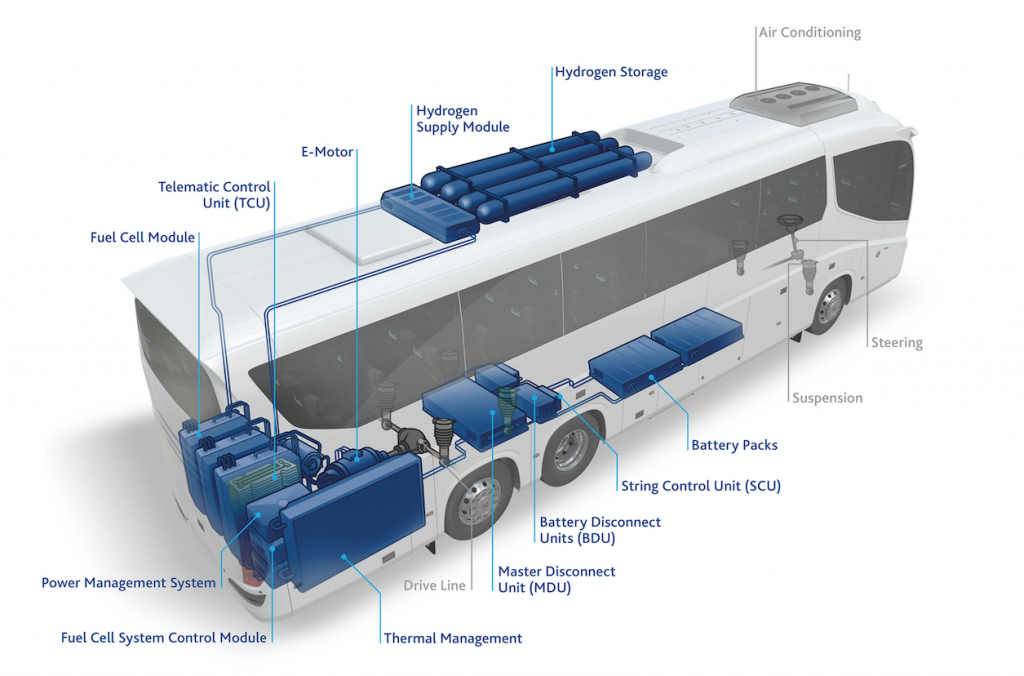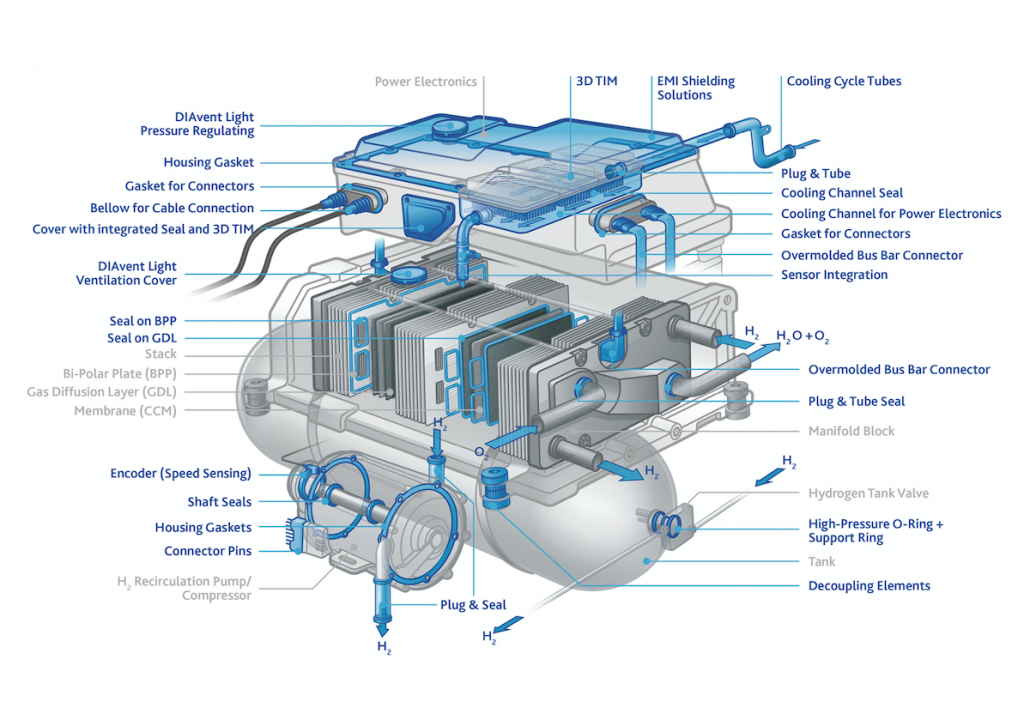FlixBus is preparing to introduce hydrogen buses. A cooperation with Freudenberg’s starting
FlixBus is working to prepare the introduction of hydrogen buses in its long distance bus network. The collaboration between the green and orange colored brand and Freudenberg Sealing Technologies, aimed at studying this possibility, is being launched. In the future, the partnership will be enriched by the contribution of a bus manufacturer. FlixBus and Freudenberg, […]

FlixBus is working to prepare the introduction of hydrogen buses in its long distance bus network. The collaboration between the green and orange colored brand and Freudenberg Sealing Technologies, aimed at studying this possibility, is being launched.
In the future, the partnership will be enriched by the contribution of a bus manufacturer. FlixBus and Freudenberg, they announce, are currently holding talks to finalize project parameters.

At least 500 kilometres with Flixbus hydrogen buses
FlixBus has already launched a trial using battery-powered electric buses on two (short) routes, one in France and one in Germany. The latter was launched at the end of 2018 on the route between Frankfurt and Mannheim and is operated through a BYD bus. In France a Yutong bus is in operation. The new collaboration goes beyond.
FlixBus has clearly defined the requirement profile for its first hydrogen buses. Performance characteristics such as acceleration should correspond to those of today’s diesel-powered, long-distance buses that are compliant to the Euro IV standard. These fuel cell vehicles should cover at least 500 kilometers of continuous use without refueling. Hydrogen refueling, itself, should be possible in 20 minutes or less.
30 Flixbus hydrogen buses for the beginning
Initially, a representative bus fleet of 30 Flixbus hydrogen buses will be equipped with a hybrid powertrain (that combines fuel cell module with battery packs) to validate system performance. The two companies are also aiming for public funding within the framework of the German “National Innovation Program Hydrogen and Fuel Cell Technology” (NIP).
Freunderberg, specialist in reducing emissions
Based in Germany, Freudenberg Sealing Technologies has been helping car and commercial vehicle manufacturers address fuel consumption and emissions requirements with innovative sealing solutions for decades. At the same time, the Freudenberg Group began researching alternative drive concepts as early as the mid-1990s, developing technically sophisticated components for fuel cells and batteries.
In early 2018, Freudenberg Sealing Technologies further strengthened its fuel cell expertise by acquiring portions of the fuel cell manufacturer Elcore and its sister company Elcomax in Munich, Germany. During the same period, the company also expanded its technological expertise in battery technology by acquiring a minority interest in US battery manufacturer, XALT Energy. Freudenberg Sealing Technologies now holds a majority stake in the company.
These strategic acquisitions have solidified Freudenberg Sealing Technologies’ position as a provider of fuel cell and electric battery powertrain solutions. Freudenberg Sealing Technologies aims to become a single source supplier of complete battery, fuel cell and hybrid energy systems that include all of the components, modules and subsystems necessary for their operation.

Flixbus beyond battery electric buses
Fabian Stenger, Managing Director of FlixBus DACH, said: “We want to help shape the future of mobility. The modern FlixBus and FlixTrain fleet is already extremely environmentally friendly. Nevertheless, we are constantly asking ourselves how we can make travel even more sustainable and further reduce CO2 emissions per capita. Following the successful launch of three electric long-distance buses, we now want to develop the first long-distance bus with fuel cell drive together with Freudenberg and set another milestone in the history of mobility.”
“The technical requirements for performance and long-term reliability are particularly high in heavy-duty businesses. This is in line with our technological and innovation expertise,” says Claus Möhlenkamp, CEO of Freudenberg Sealing Technologies. “We see the fuel cell in combination with electric batteries as an integral part of the mobility of the future. With FlixBus, we have found a partner for this zero-emission application and are looking forward to working together on this groundbreaking project.”








